
Suicidio ¿del tabú al sensacionalismo? Nortes Centradas en la
Ophelia, oil painting that was created in 1851-52 by John Everett Millais and first exhibited at the Royal Academy of Arts in 1852. It is regarded as a masterpiece of the Pre-Raphaelite Brotherhood. Ophelia is one of the most popular Pre-Raphaelite paintings, produced when the youthful enthusiasm of the group was at its peak.

SORMENAREN TARTEA Sir John Everett Millaisen “Ophelia” Arrosa
Ophelia (details) by John Everett Millais, 1851-52, via Tate Britain, London In addition to poring over the works of Shakespeare and other medieval influences, the founding members of the Pre-Raphaelite Brotherhood, including John Everett Millais, were captivated by what the English critic John Ruskin had to say about art.The first volume of John Ruskin's Modern Painters treatise was.
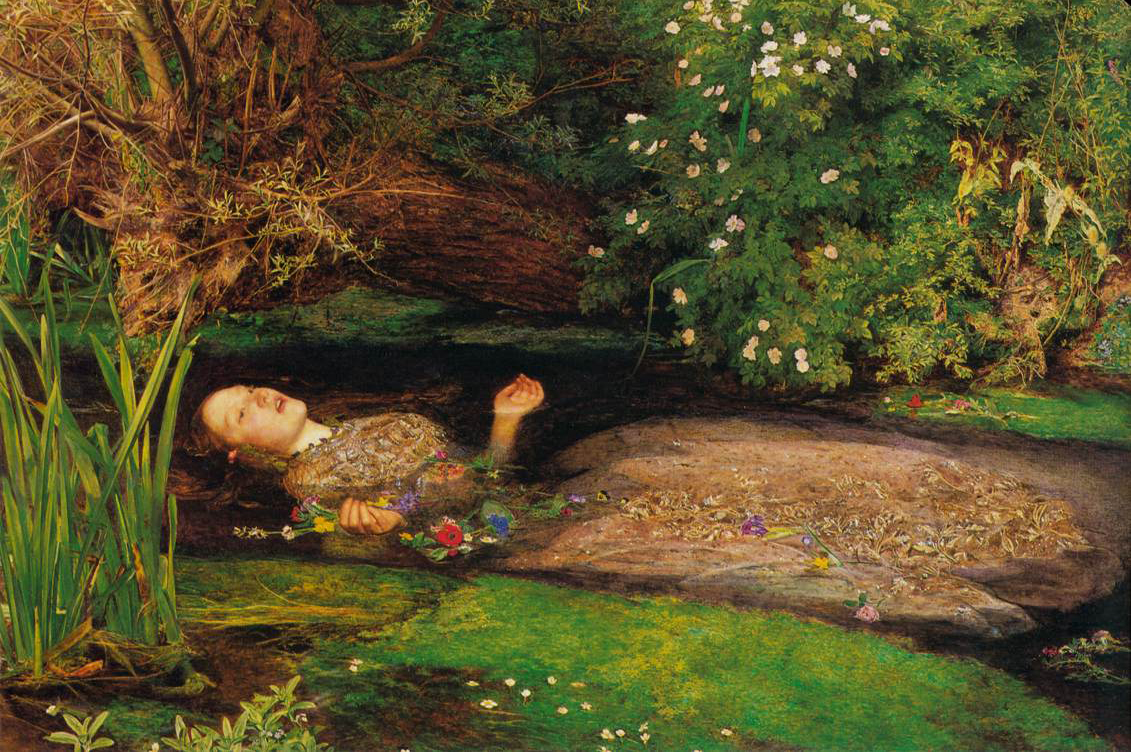
Prisma Gótico Ofelia. John Everett Millais (18291896).
L'Ofelia di John Everett Millais è uno dei capolavori dell'arte preraffaellita ma è anche uno dei più celebri dipinti a tema shakespeariano.

plastekscolor OFELIA
Ofelia (Ophelia) di John Everett Millais è un celebre dipinto realizzato da uno dei famosi esponenti della Confraternita Preraffaellita John Everett Millais, Ofelia (Ophelia), 1851-2, olio su tela, 76,2 x 111,8 cm. Londra, Tate Britain Qui trovi l'immagine dell'opera, vai al sito della del Museo Indice Descrizione Storia Analisi
Трагическая жизнь девушки, позировавшей для картины "Офелия" Личное
Ophelia è un dipinto a olio su tela (76,2×111,8 cm) del pittore preraffaellita John Everett Millais, realizzato nel biennio 1851 - 1852 e appartenente alla collezione della Tate di Londra . Indice 1 Il personaggio Ofelia 2 Storia 3 Descrizione 4 Retaggio 5 Note 6 Bibliografia 7 Altri progetti 8 Collegamenti esterni Il personaggio Ofelia

La follia di Ofelia, da Shakespeare a Millais IL SENSO DEL BELLO
Ophelia (ca 1851-1852) Oljemålning av John Everett Millais. Summary[edit] This is a featured pictureon the English language Wikipedia (Featured pictures) and is considered one of the finest images. See its nomination here. If you think this file should be featured on Wikimedia Commons as well, feel free to nominate it.
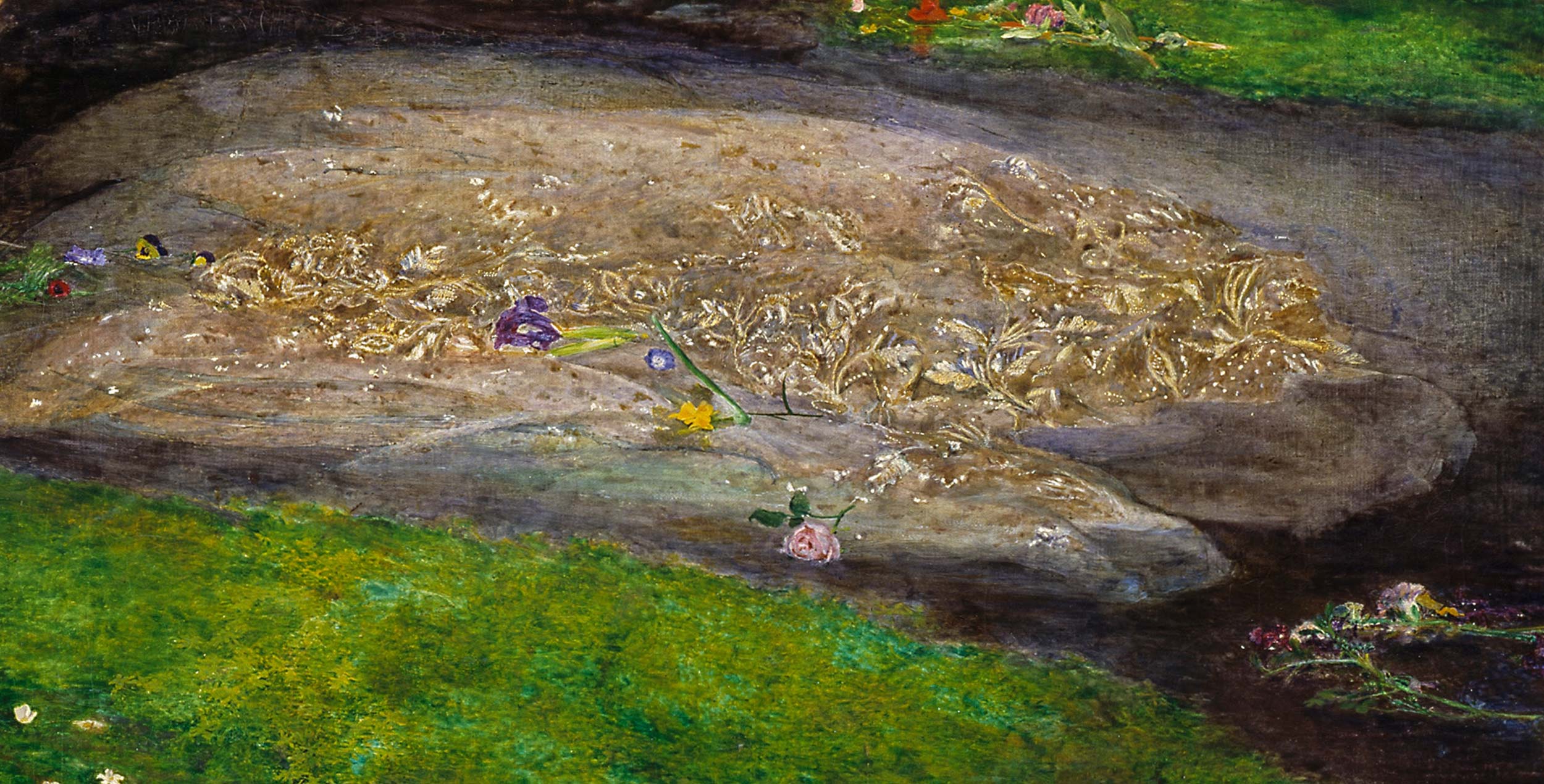
L'Ofelia di John Everett Millais. Come un amore tragico fu reso in pittura
This is the drowning Ophelia from Shakespeare's play Hamlet. Picking flowers she slips and falls into a stream. Mad with grief after her father's murder by Hamlet, her lover, she allows herself to die. The flowers she holds are symbolic: the poppy means death, daisies innocence and pansies love in vain.The painting was regarded in its day as.

La follia di Ofelia, da Shakespeare a Millais Il senso del Bello
1829-1896 Ophelia is one of the most popular Pre-Raphaelite works in the Tate collection. The painting was part of the original Henry Tate Gift in 1894. Millais's image of the tragic death of Ophelia, as she falls into the stream and drowns, is one of the best-known illustrations from Shakespeare's play Hamlet.

Preraffaelliti Sir John Everett Millais 182996
Ofelia è un dipinto di John Everett Millais, pittore inglese dell'Ottocento che fu tra i fondatori della corrente dei preraffaelliti. L'opera è conservata presso la Tate Gallery di Londra. Il soggetto è preso dall' Amleto di Shakespeare: Ofelia impazzisce per il dolore e muore annegata nel fiume. Il ruolo di Ofelia è un ruolo.
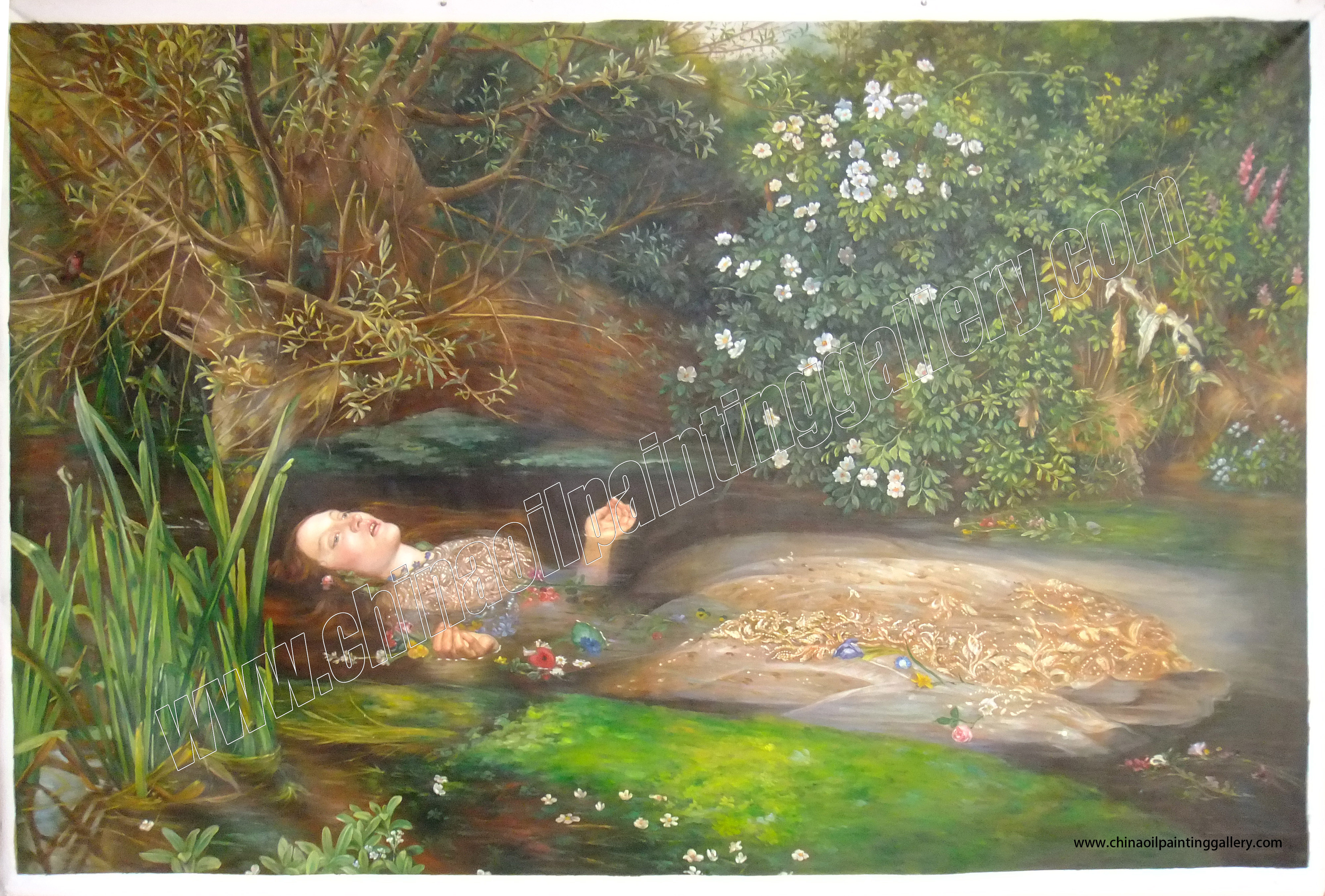
Museum quality Oil painting reproductions of Ophelia by John Everett
Ophelia is an 1851-52 painting by British artist Sir John Everett Millais in the collection of Tate Britain, London. It depicts Ophelia, a character from William Shakespeare 's play Hamlet, singing before she drowns in a river.
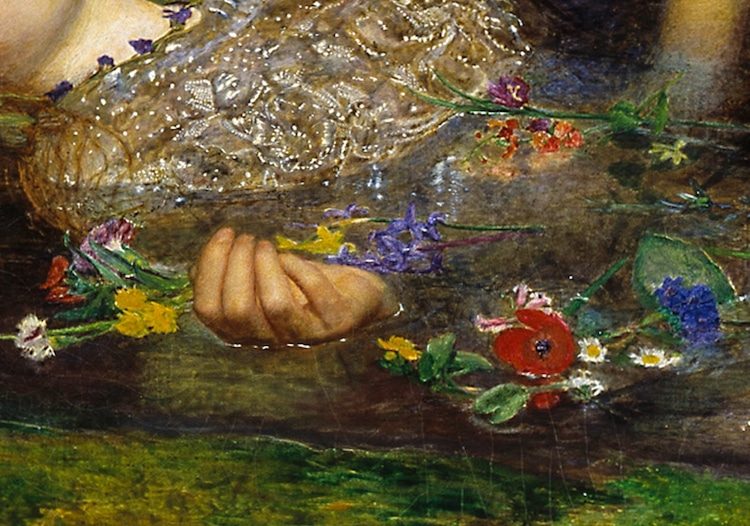
La fascinante historia detrás de 'Ofelia,' la icónica pintura prerrafaelita
Ophelia, lying in a stream, is covered in flowers. A tragic story. Elizabeth Siddal, the future wife of Millais' friend Dante Gabriel Rossetti, was the model who interpreted Ophelia.Millais had the model immersed in the bath of his apartment in Gower Street in London, to reproduce the drowning faithfully and to have the effect of the swelling of the dress immersed in water.

7. John Everett Millais, Ofelia, 1852 El Estudio del Pintor
Painting "Ophelia" was no walk in the park for Millais, and he weathered the elements around him, reportedly from early in the morning to the evening, for around five months, but in the end, he created a composition that was almost photographic.

LIZZIE SIDDAL E IL PRERAFFAELLISMO AL FEMMINILE Storia dell'Arte
Feb 14, 2017 Brad Smithfield. Ophelia is a painting by the Pre-Raphaelite artist Sir John Everett Millais. The British painter was inspired by Shakespeare's Hamlet, and it perfectly captures the mystical atmosphere when Ophelia sinks to her death in a Danish river. It was painstakingly completed between 1851 and 1852 and is regarded as one of.

La follia di Ofelia, da Shakespeare a Millais Il senso del Bello
In this post, I take a closer look at the remarkably intricate Ophelia by British artist and founding member of the Pre-Raphaelites, Sir John Everett Millais. I cover: John Everett Millais, Ophelia, c.1851 Key Facts, Ideas, and Subject The figure in the painting is Ophelia, a character from Shakespeare's Hamlet, Act IV, Scene VII. She is
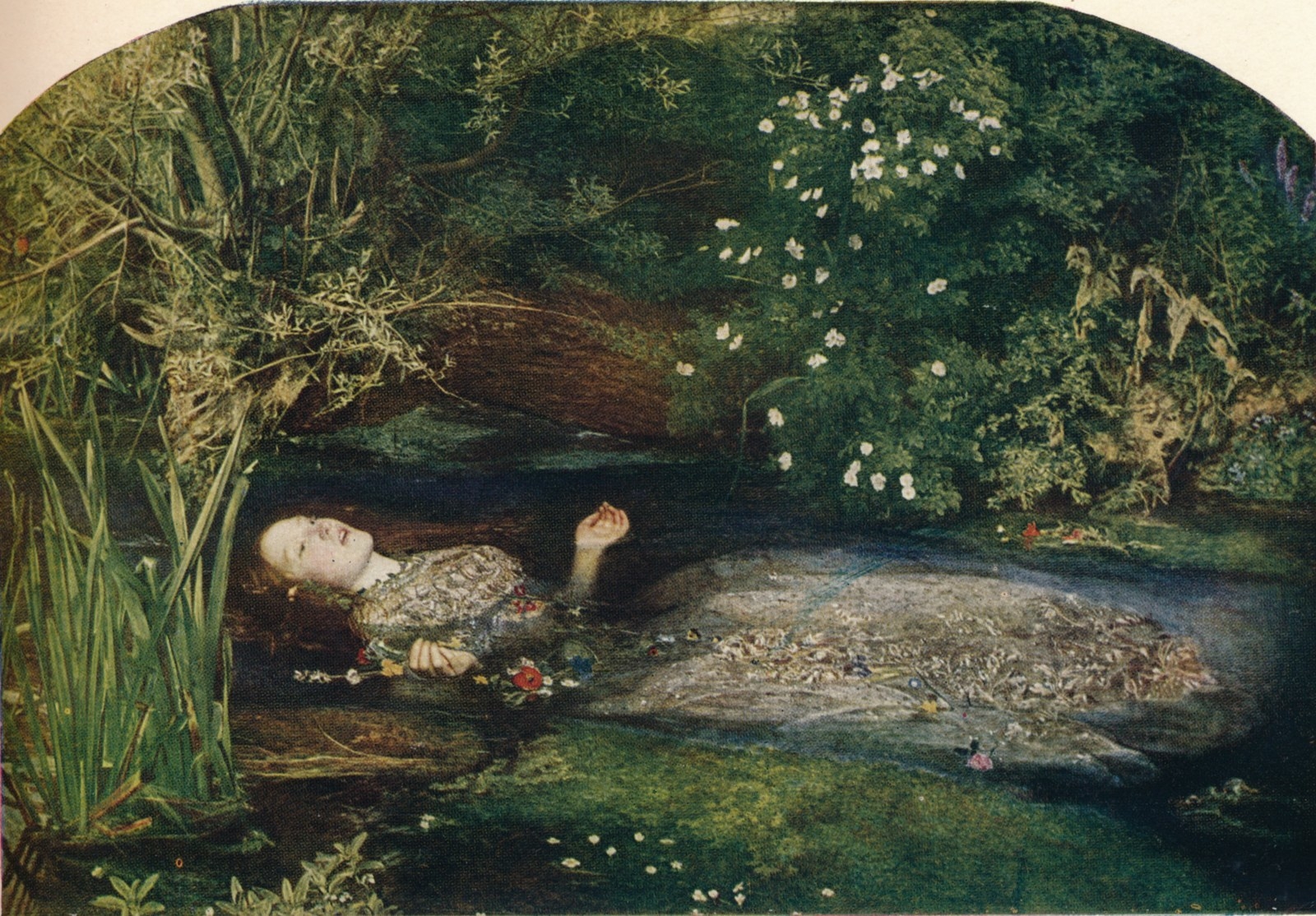
My Abortion Wasn’t Like Ben Folds Said It Would Be
This is the drowning Ophelia from Shakespeare's play Hamlet. Picking flowers she slips and falls into a stream. Mad with grief after her father's murder by Hamlet, her lover, she allows herself to die. The flowers she holds are symbolic: the poppy means death, daisies innocence and pansies love in vain.The painting was regarded in its day as.
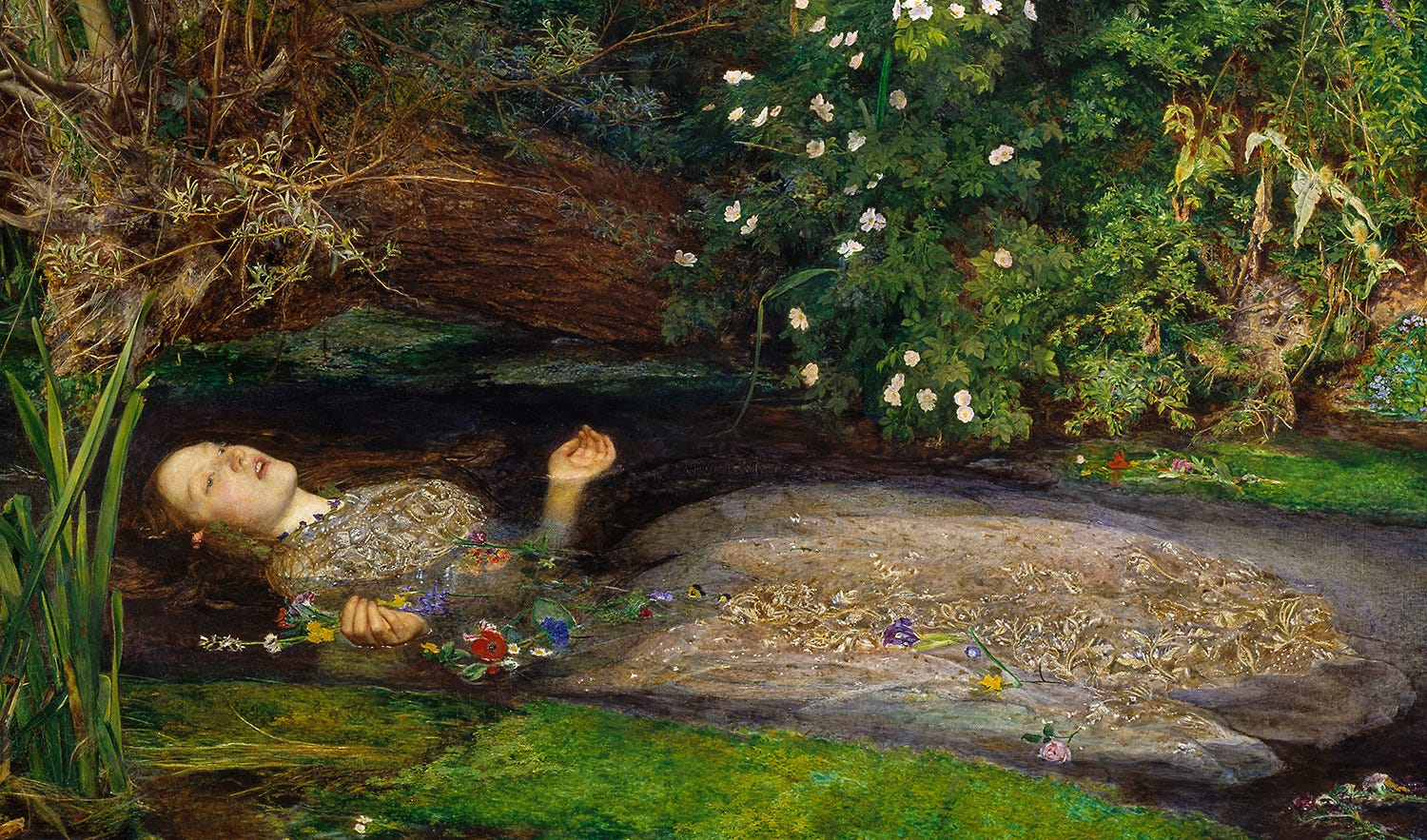
How to Read Paintings Ophelia by John Everett Millais by Christopher
Ophelia (1851 - 1852) by John Everett Millais; John Everett Millais, Public domain, via Wikimedia Commons. When asked to figure out what it was, the male relative immediately said it was a hare, followed by a dog or a cat. Millais subsequently removed the water vole from the finished painting, but a rough drawing of it can still be found in the upper corner of the canvas covered by the frame.